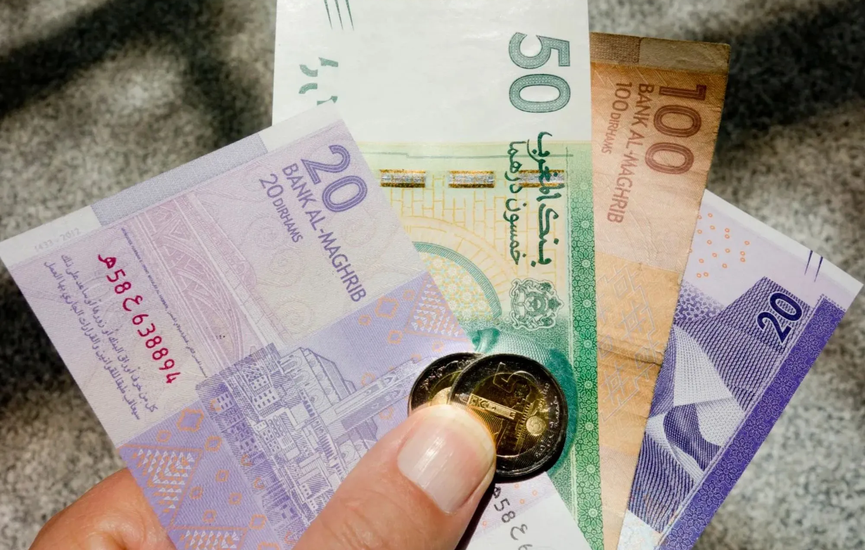If you’re running an international business from Morocco - whether exporting goods to Europe, importing raw materials from South America, or freelancing for clients globally - navigating the traditional banking system can present numerous challenges.
The main issue lies in the outdated nature of traditional banking, making cross-currency payments cumbersome. You often have to sign multiple documents, deal with frustrating delays, and face high conversion fees. On top of that, banks typically offer unfavorable exchange rates, meaning your business ends up with less money in its account.
The solution? Online digital platforms have revolutionized international money transfers, making the process cheaper, more convenient, and far less stressful. This is why more businesses are turning to multi-currency accounts.
What is a Multi-Currency Account?
As the name implies, a multi-currency account lets businesses hold, send, receive, and manage funds in various currencies, all within a single banking setup. Instead of opening separate bank accounts for each currency, or converting everything into Moroccan dirhams, businesses can keep multiple currency balances within one account.
This means you can receive USD, CAD, YEN, or any other currency without the need to convert it to Moroccan dirhams immediately. Why is this important?
By not being forced into conversion, businesses can save on hefty fees and protect themselves from unfavorable exchange rates. This helps businesses avoid unnecessary costs and manage their assets more effectively.
How Multi-Currency Accounts Simplify Business Operations
Multi-currency accounts are particularly beneficial for businesses dealing internationally. They eliminate the headache of constantly converting currencies and setting up complex payment systems while also saving money.
For example, if your business in Morocco receives payments from international clients in various currencies, a multi-currency account allows you to hold those payments in their original form and decide when to convert them. This way, businesses can avoid exchange fees, which may seem minor but can quickly add up.
Moreover, converting currencies only when the rates are favorable means your business doesn’t lose money on bad exchange rates. Additionally, a multi-currency account gives businesses clearer visibility of their cash flows in different currencies, offering a simpler and more transparent financial picture.
Managing risk is also a key aspect of business, and a multi-currency account helps with this. For instance, if the euro weakens against the dirham, businesses holding euro revenue can choose to convert their funds when the rates are more favorable. Furthermore, holding multiple currencies diversifies your asset portfolio, making your business less vulnerable to currency fluctuations.
Lastly, if you import goods or pay international suppliers in foreign currencies, a multi-currency account allows you to pay directly from those currencies, avoiding inefficient conversions to dirhams.
Real-Life Impact for Moroccan Businesses
Imagine a digital agency based in Casablanca working with clients in France, Germany, and the U.S. With a multi-currency account, they can receive payments in euros and dollars, hold them in those currencies, and convert them when rates are favorable. This not only lowers transaction costs but also provides more flexibility and allows for better currency diversification.
Or consider a manufacturer in Tangier exporting goods to Europe. If the business receives payments in euros, it can hold some of that balance to cover upcoming expenses in euros, such as logistics, packaging, and overseas marketing. This improves cash-flow certainty and protects against exchange rate shifts.
These are just a few examples of how multi-currency accounts can help businesses streamline their international operations, save money, and simplify their processes.
Things to Consider
While multi-currency accounts offer many advantages, businesses should still be mindful of exchange-rate risks. Holding multiple currencies doesn’t shield you from market fluctuations, so good financial planning is essential for determining when to convert currencies and which ones to hold.
Additionally, businesses must be aware of any banking or regulatory requirements. In Morocco, banks may have specific documentation or rules regarding convertible currency accounts, such as how they are funded or used. Understanding these conditions is key to making the most of your multi-currency account.
In conclusion, if you’re running an international business in Morocco, a multi-currency account is more than just a convenience — it’s an essential tool. It can provide your business with greater flexibility, reduce costs, and open new international opportunities.
